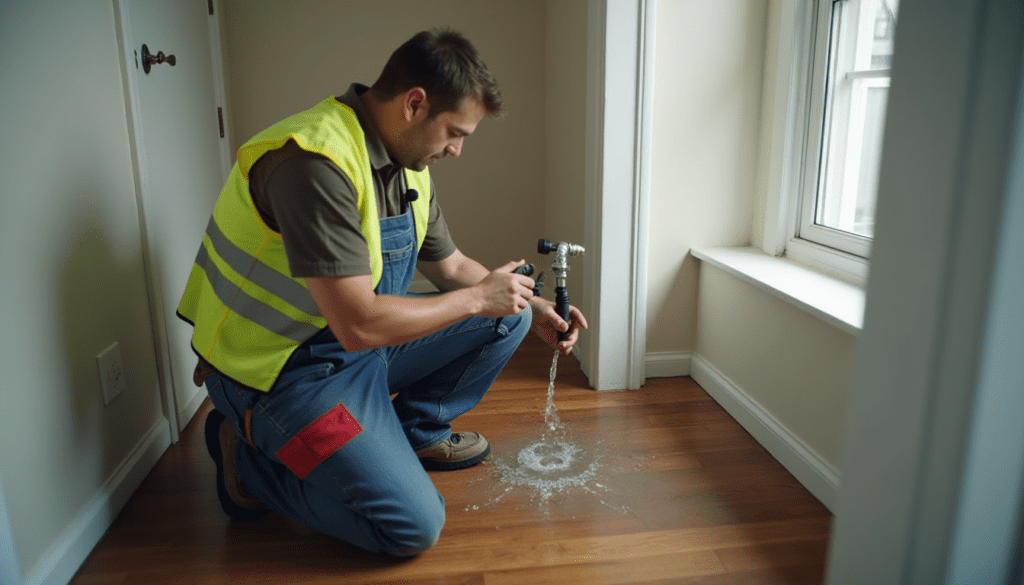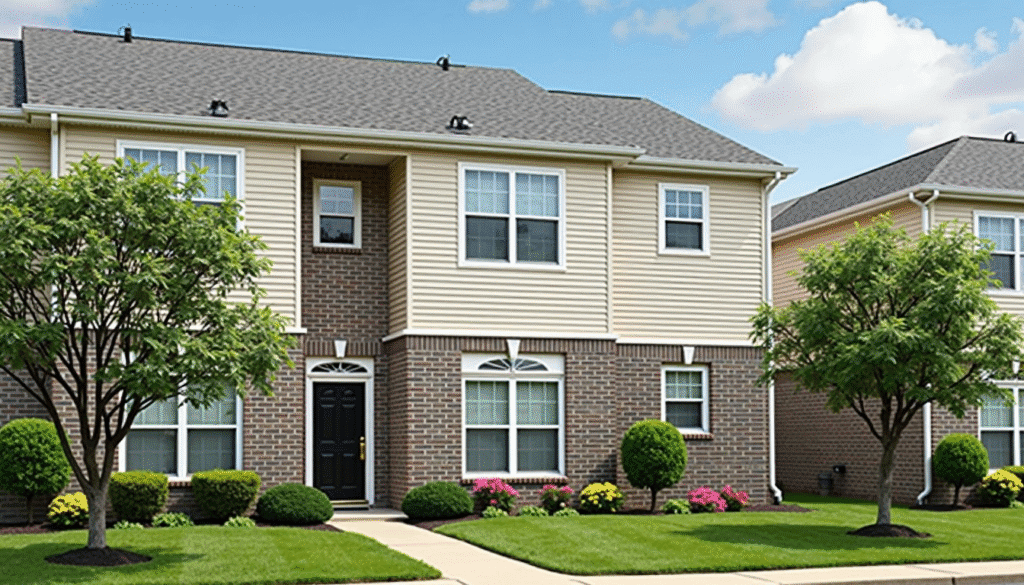Deciding to raise rent after a lease expires is an essential financial decision for landlords in Garfield, NJ. It’s also a critical moment for tenants, who must adjust their budgets accordingly or consider relocation. This article clearly explains what both landlords and tenants in Garfield need to understand about rent increases, including legal guidelines, proper notification methods, and local best practices. By knowing the rules and adopting clear communication strategies, you can smoothly navigate this transition and prevent disputes.
Raising Rent in Garfield, NJ – What Landlords and Tenants Should Know
When a lease ends, landlords in Garfield, NJ, naturally consider whether to adjust the rent to align with market conditions. Garfield is a city in Bergen County with its own unique housing market dynamics. Understanding state laws and local customs is crucial, as improper rent hikes can lead to tenant disputes or even legal action. Unlike some other New Jersey municipalities, Garfield doesn’t have local rent-control laws, meaning landlords have more flexibility—but also a greater responsibility to ensure increases remain fair and lawful.
This article will guide landlords through the complexities of raising rent after a lease expiration, including how much notice to provide, the legality of different increase amounts, and tips for communicating effectively with tenants to maintain positive landlord-tenant relationships.
Legal Context in New Jersey: No State Rent Control, Municipal Flexibility
New Jersey has no statewide rent control, providing considerable freedom to landlords. However, the state has stringent rules around lease terminations, rent increases, and notices. Landlords cannot raise rent during an active lease period, regardless of changing market conditions or increased expenses.
After a lease expires, landlords have the option to present a new lease at a higher rental rate, provided appropriate notice is given. This statewide rule helps tenants plan financially, ensuring no sudden increases happen mid-lease. Some municipalities have their own rent control laws, placing limits on how much rent can increase annually. Garfield does not currently have local rent control, making state regulations the sole guidelines landlords must follow.

3. Is There Rent Control in Garfield, NJ?
Currently, Garfield, NJ, does not enforce municipal-level rent control regulations. This means landlords have considerable flexibility to adjust rents according to market conditions after leases expire. However, flexibility doesn’t equate to unlimited freedom. Landlords must still operate within the guidelines established by state law, specifically ensuring rent increases aren’t deemed “unconscionable”—excessively high compared to local norms and economic conditions.
The absence of local rent control simplifies matters somewhat, but also increases the need for transparency. Without explicit guidelines, the burden of proof shifts toward landlords, who must justify significant rent hikes if challenged. Thus, market research and maintaining records of comparable units in Garfield are crucial steps for landlords considering a rent increase.
4. When You Can Raise Rent – Lease Expiration vs Month-to-Month
Rent increases can only legally occur when a lease term ends. Landlords cannot implement rent hikes mid-lease, even if the tenant agrees verbally. For fixed-term leases, landlords should clearly state the intention to increase rent upon renewal, typically 60–90 days before the lease ends. Such advance notice is both respectful and required under most lease agreements.
For month-to-month tenancies, landlords must provide at least 30 days written notice before a rent increase takes effect. The new rate can only become effective at the beginning of the next rental period following the notice. For example, if notice is given on April 10th, the increase can only start from June 1st, not May 1st. Clear written notices help tenants make informed decisions about their housing options, whether staying and accepting the new terms or moving elsewhere.

5. Required Notice Periods in NJ and Garfield
Providing the appropriate amount of notice before a rent increase is critical for legal compliance and maintaining positive relationships with tenants. In Garfield, landlords must follow New Jersey state regulations concerning notice periods, as no local exceptions exist.
For tenants under a fixed-term lease, the required notice period for rent increases generally ranges from 60 to 90 days, depending on what the lease specifies. If the lease doesn’t specify, landlords must provide at least 30 days’ notice. Notices should explicitly state the end of the current lease, along with clear terms of the new rent and lease period.
For month-to-month tenants, landlords are required by New Jersey law to provide at least 30 days written notice. This notice should clearly communicate that the current agreement ends and detail the conditions of the new rental terms, including the effective date of the new rent amount.
Detailed Legal Requirements for Notices:
- Written Documentation: Rent increase notices must always be in writing, not verbal or electronic only.
- Explicit Lease Termination: The notice should clearly terminate the existing lease agreement and offer a new lease with revised rent terms in the same document.
- Timing Compliance: Notices must adhere strictly to the lease’s terms regarding timing; failing to do so can render the rent increase invalid.
- Proper Delivery: Landlords should deliver notices via certified mail, email (with confirmation), or personal delivery with acknowledgment to avoid disputes.
Adhering to these notice requirements helps protect landlords from legal complications while offering tenants clarity about their housing arrangements. Proper notices ensure everyone involved has ample time to make well-informed decisions, promoting transparency and fairness in landlord-tenant relationships.
6. How Much Can Rent Increase in Garfield (Market vs Limits)?
In Garfield, NJ, landlords have flexibility regarding rent increases because no specific local rent-control limits exist. However, this flexibility does not imply total freedom. The state mandates that increases must not be deemed “unconscionable”—meaning excessively high and unjustifiable based on local market conditions, comparative property rates, or changes in expenses.
Most Garfield landlords typically raise rents between 3% to 8% annually, in alignment with broader trends in Bergen County and Northern New Jersey. A well-documented increase within this range rarely faces challenges. However, pushing beyond 10% without significant justification—such as major renovations, property improvements, or substantial cost increases—can prompt tenants to dispute the increase legally.
When determining the appropriate rent increase, landlords should analyze factors including local rent comparables, inflation rates, property maintenance costs, and significant municipal or property tax adjustments. Providing transparency through documented market comparisons and clear explanations ensures tenant understanding and legal protection.

Factors influencing appropriate rent increases include:
- Comparative rent rates in Garfield and surrounding areas
- Property improvements or renovations made recently
- Rising operating expenses (property taxes, utilities, insurance)
- Overall economic conditions affecting local housing affordability
- Length of tenant occupancy and tenant reliability history
7. When an Increase Might Be Deemed Unconscionable
The term “unconscionable” is crucial in New Jersey rent increase discussions. Although Garfield has no explicit local restrictions, state courts evaluate whether an increase is justified based on several important factors. An unconscionable increase is significantly above market norms without clear justification, such as notable improvements or unavoidable increased costs.
Court considerations typically include evaluating how long a tenant has resided at the property, the property’s condition, market rates for similar properties in Garfield, and documented proof of increased costs to the landlord. For instance, a sudden 20% rent increase without any property enhancements or economic justification would likely be challenged successfully by a tenant in court.
To minimize legal risks, landlords should carefully document justifications, especially if the proposed increase exceeds typical local trends. This documentation, including detailed market research and evidence of cost increases, can be essential if a tenant challenges the increase.
8. Drafting Proper Notice to Quit and Rent Increase Offer
A crucial step in the rent increase process is properly drafting and delivering the rent increase notice. A well-structured notice reduces misunderstandings and legal challenges. This document must clearly specify that the current lease or tenancy agreement will terminate, offering tenants the option to renew under updated rental terms.
The notice should include critical information such as the tenant’s full name and address, landlord contact details, the effective date of the increase, the exact new rental amount, payment due dates, and the tenant’s deadline to respond. Additionally, landlords should clearly indicate consequences if the tenant chooses not to accept the new terms, typically meaning tenancy termination at lease expiration.
Delivering the notice by certified mail or hand delivery with tenant acknowledgment ensures landlords have documented proof if disputes arise. Maintaining professional, clear, and respectful language also fosters positive landlord-tenant relationships, even when delivering potentially unwelcome news.
9. Explaining Rent Increase to Tenants – Best Practices
Communicating a rent increase effectively is equally as important as the legality of the process. Transparent communication maintains tenant trust and reduces turnover, protecting the landlord’s investment. When tenants clearly understand the reason behind a rent increase, they’re less likely to react negatively or consider moving immediately.
Landlords should clearly explain increases by highlighting specific reasons such as increased maintenance costs, rising property taxes, inflationary pressures, or necessary property improvements. Offering tenants detailed explanations, either in writing or through in-person discussions, demonstrates respect and empathy, reinforcing positive relationships.
Best practices for effective tenant communication:
- Send advance notifications well beyond the required legal minimum.
- Clearly outline how the increased rent aligns with local market rates.
- Offer personal meetings to discuss any tenant concerns or questions.
- Be open to negotiation or gradual implementation of the increase.
- Maintain a professional yet empathetic tone to ease potential tension.
10. How Tenants Can Respond or Negotiate
Upon receiving a rent increase notice, tenants in Garfield have several options. The tenant’s choice will significantly impact the landlord’s actions, highlighting the importance of clear and early communication from both parties.
Tenants can choose to accept the increased rent, typically formalizing this through a signed lease renewal. Alternatively, tenants might request negotiations, particularly if they have a longstanding relationship and a history of timely payments and responsible tenancy. Negotiations might include staggered increases, additional amenities, or slight modifications to lease terms, helping both parties find common ground.
If tenants consider the increase unreasonable or unjustifiable, they may legally challenge it as unconscionable. In such cases, tenants can refuse the new terms and allow the landlord to initiate court action if eviction becomes necessary. This route, although rare, underscores the importance for landlords to document their reasoning clearly.
Lastly, tenants may opt to vacate the property upon lease termination, leading to a potential vacancy period for the landlord. Hence, landlords should weigh potential vacancies against the proposed increase to ensure long-term profitability.
By clearly communicating and remaining open to negotiation, landlords often retain valued tenants, reducing turnover and associated costs.
11. Security Deposit Implications – NJ Limits
When raising rent in Garfield, NJ, landlords must also consider the implications for security deposits. Under New Jersey state law, landlords are permitted to collect a security deposit equal to no more than one-and-a-half months’ rent. Thus, if you increase the monthly rental rate, you are legally entitled to request an additional security deposit to reflect the updated rent amount. However, this adjustment must remain within the legally permitted limit of 1.5 months’ total rent.
It’s important to communicate clearly with tenants regarding the security deposit adjustment. A detailed explanation should accompany your rent increase notice, outlining the exact amount due, how it aligns with the updated rent, and the deadline for submitting the additional funds. Be mindful that tenants may view an increased security deposit as a financial burden, especially combined with a rent hike. To maintain positive tenant relations, consider negotiating a payment plan or grace period for tenants who need additional time to meet the new requirement.
12. Comparing Garfield to Nearby Towns
Landlords should regularly analyze how rental prices in Garfield compare with neighboring towns such as Lodi, Saddle Brook, Elmwood Park, and Passaic. Understanding regional rental trends provides crucial context for determining appropriate rent increases and helps landlords justify any adjustments to tenants effectively.
For instance, if Garfield’s rental rates are significantly below neighboring towns, landlords might have more flexibility to raise rents without losing tenants to nearby communities. Conversely, if rental rates are already competitive, smaller incremental increases might be advisable to avoid high turnover.
Comprehensive comparative research includes assessing local vacancy rates, median rents for similar properties, and overall housing market trends within Bergen and Passaic Counties. Documenting this information provides essential support in discussions with tenants who may question the rationale behind rent increases.
13. How to Document Properly – Record-Keeping & Communications
Accurate documentation is critical whenever raising rent. Maintaining thorough records protects landlords from legal complications and simplifies future interactions with tenants. Essential documentation includes written notices sent to tenants, records of correspondence, market research, and evidence supporting the reasons for rent increases.
Ensure copies of all rent increase notifications, tenant acknowledgments, email communications, and mailed confirmations (such as certified mail receipts) are carefully stored. Additionally, landlords should maintain clear records of rent payment history, lease renewal offers, and tenant acceptance or rejection.
Detailed documentation should also include evidence of any increases in property-related expenses that justify rent hikes—such as rising property taxes, increased utility costs, or recent property improvements. This level of meticulous record-keeping provides strong legal footing in the rare case of tenant disputes or court actions.
14. Sample Rent Increase Letter Template
A clear and concise rent increase letter helps landlords comply with legal requirements while fostering transparent communication. Below is a simple and effective template suitable for Garfield landlords:
[Date]
[Tenant’s Name]
[Rental Property Address]
Garfield, NJ [ZIP Code]
Dear [Tenant’s Name],
This letter serves as formal notice that your current lease at [Rental Property Address] will expire on [Lease Expiration Date]. Effective [New Lease Start Date], the monthly rental amount will increase from $[Current Rent Amount] to $[New Rent Amount]. This adjustment reflects increases in operating costs and aligns with current market rates in Garfield.
If you choose to renew your lease at the updated rental amount, please inform us by [Response Deadline Date]. Additionally, the required security deposit will be adjusted to remain consistent with New Jersey state law. Details regarding this adjustment are enclosed.
Should you have any questions or wish to discuss this increase, please contact us directly at [Landlord’s Phone Number or Email]. We value your tenancy and look forward to continuing our relationship.
Sincerely,
[Landlord’s Name]
[Contact Information]
15. Frequently Asked Questions (FAQ)
Here are several commonly asked questions regarding rent increases in Garfield, NJ:
Can my landlord raise my rent mid-lease in Garfield?
No, New Jersey law prohibits mid-lease rent increases. Landlords must wait until your current lease ends before implementing a rent increase.
How much notice must my landlord give before raising my rent?
Landlords must provide at least 30 days’ written notice for month-to-month tenants. For fixed-term leases, notice typically ranges from 60 to 90 days, depending on the lease terms.
Is there a legal limit to how much rent can increase annually in Garfield?
No specific legal limit exists in Garfield, but increases must not be deemed “unconscionable” or excessively high compared to local market conditions and comparable properties.
Can I negotiate a proposed rent increase with my landlord?
Yes, tenants are encouraged to discuss rent increases and potentially negotiate more favorable terms, especially if they are long-term tenants in good standing.
16. Conclusion and Call to Action
Raising rent after a lease expires in Garfield, NJ requires landlords to navigate specific legal procedures, communicate transparently with tenants, and meticulously document every step. By understanding and adhering to these requirements, landlords can smoothly implement necessary rent adjustments while maintaining positive landlord-tenant relationships.
Need assistance managing rent increases, compliance issues, or tenant communication? Contact RentShield Property Management today to see how our experienced team can simplify the process, protect your investment, and keep your properties profitable and stress-free.






